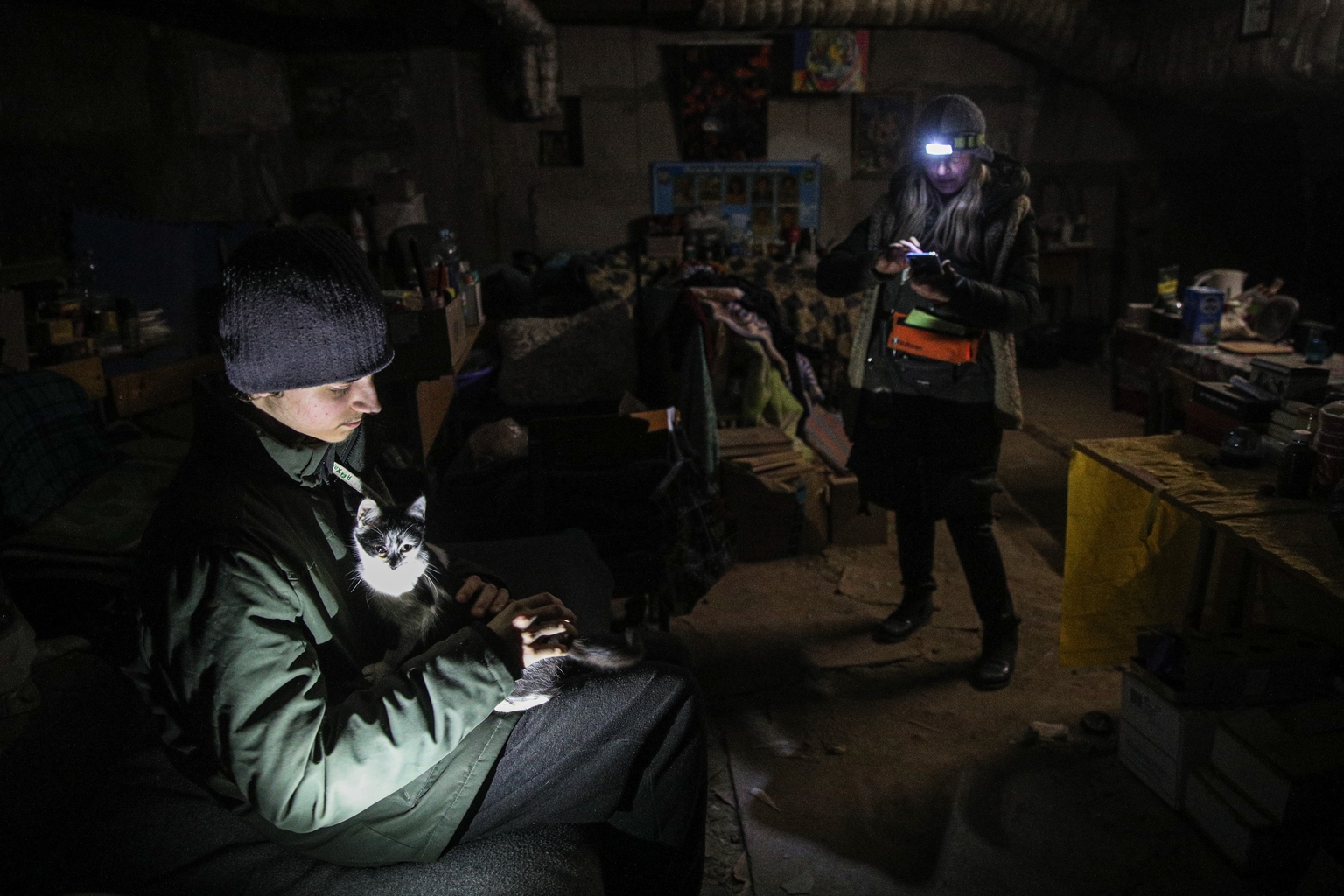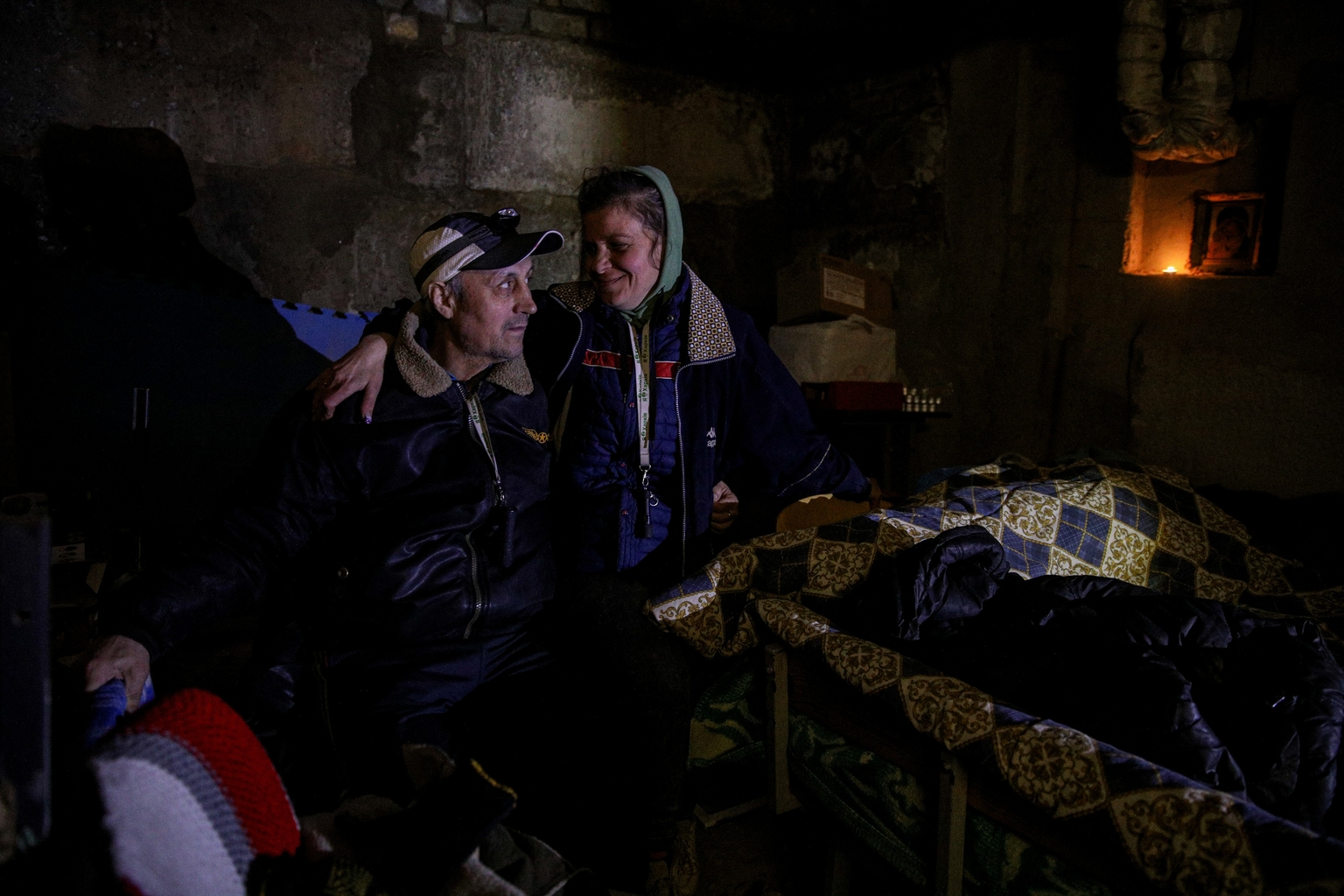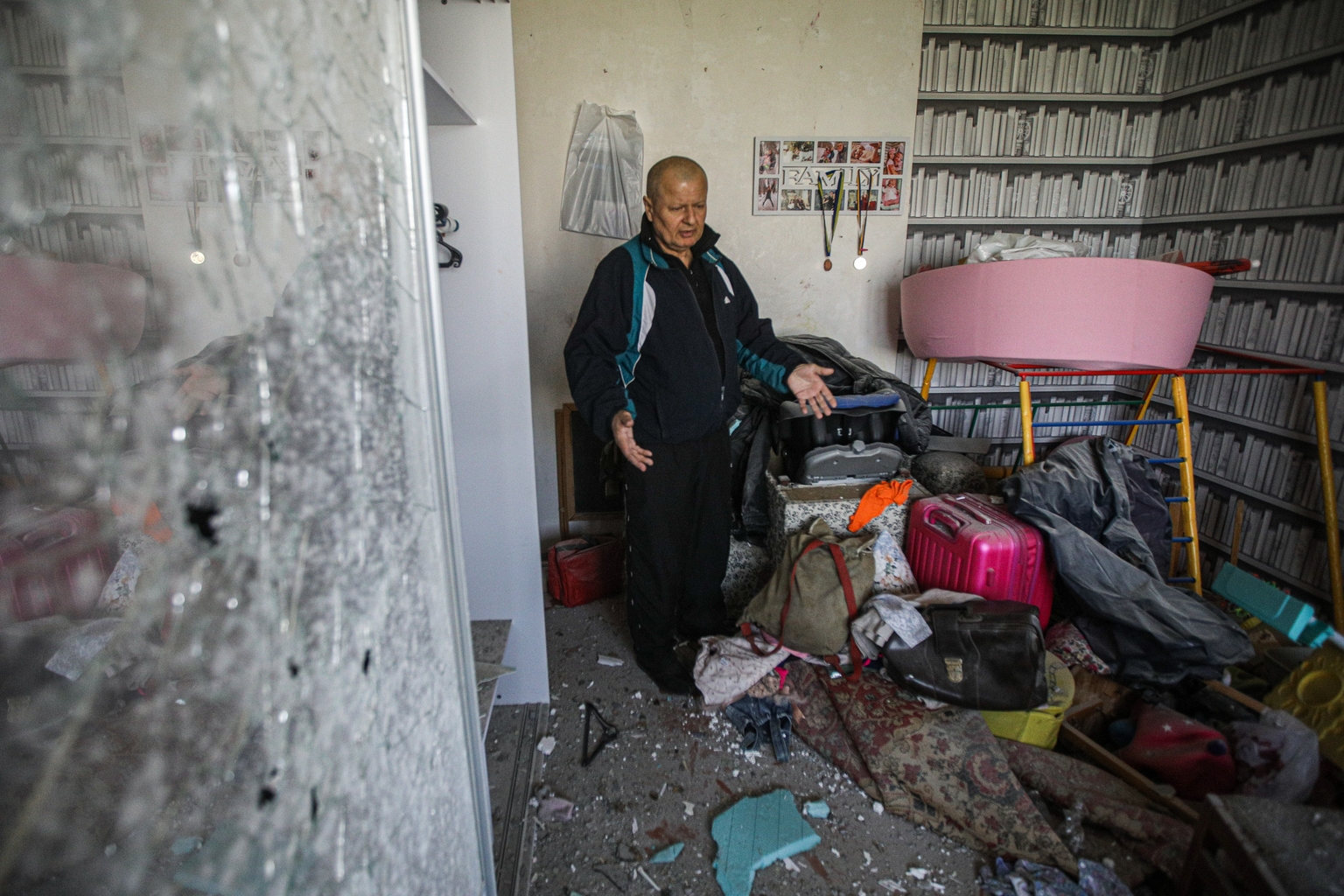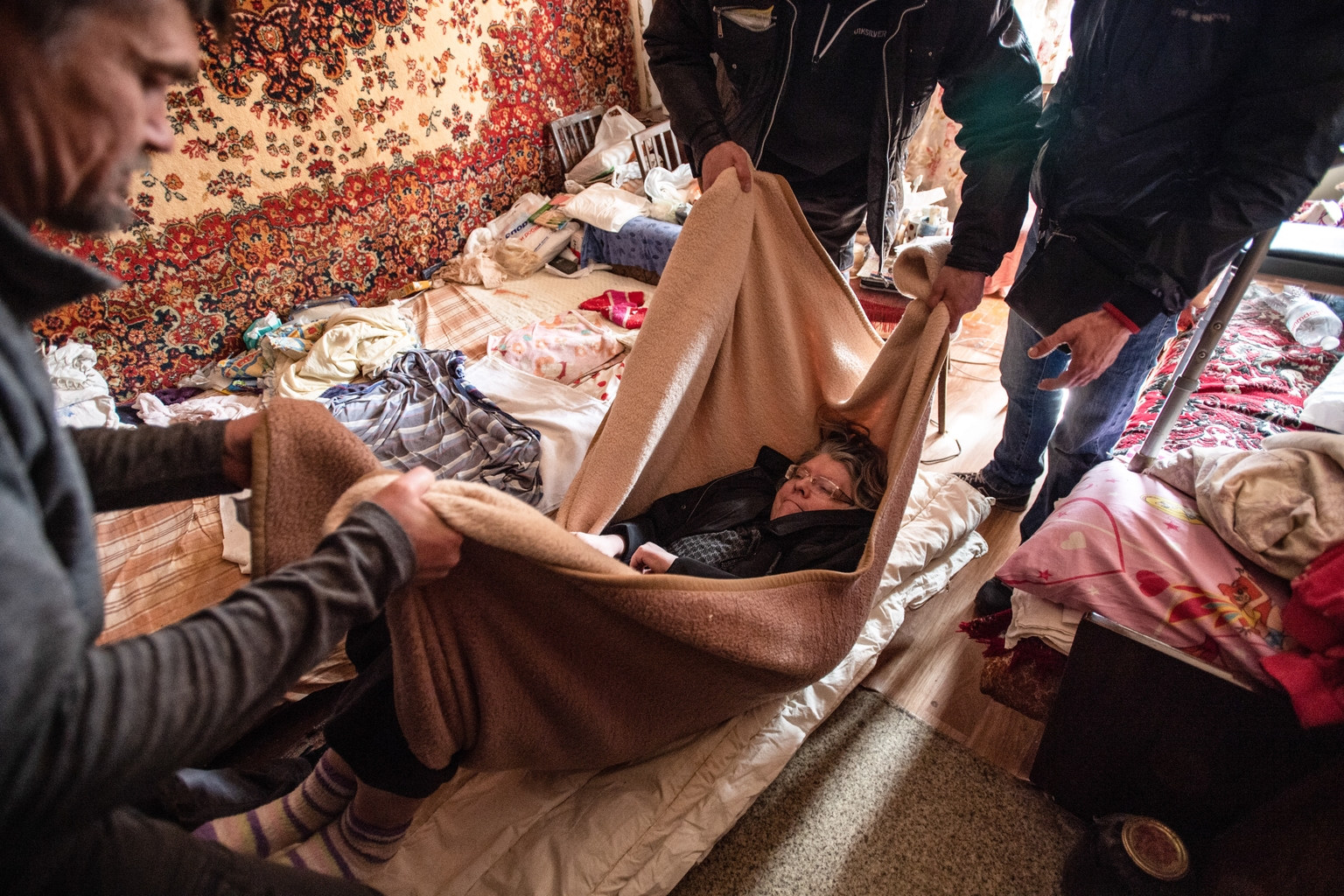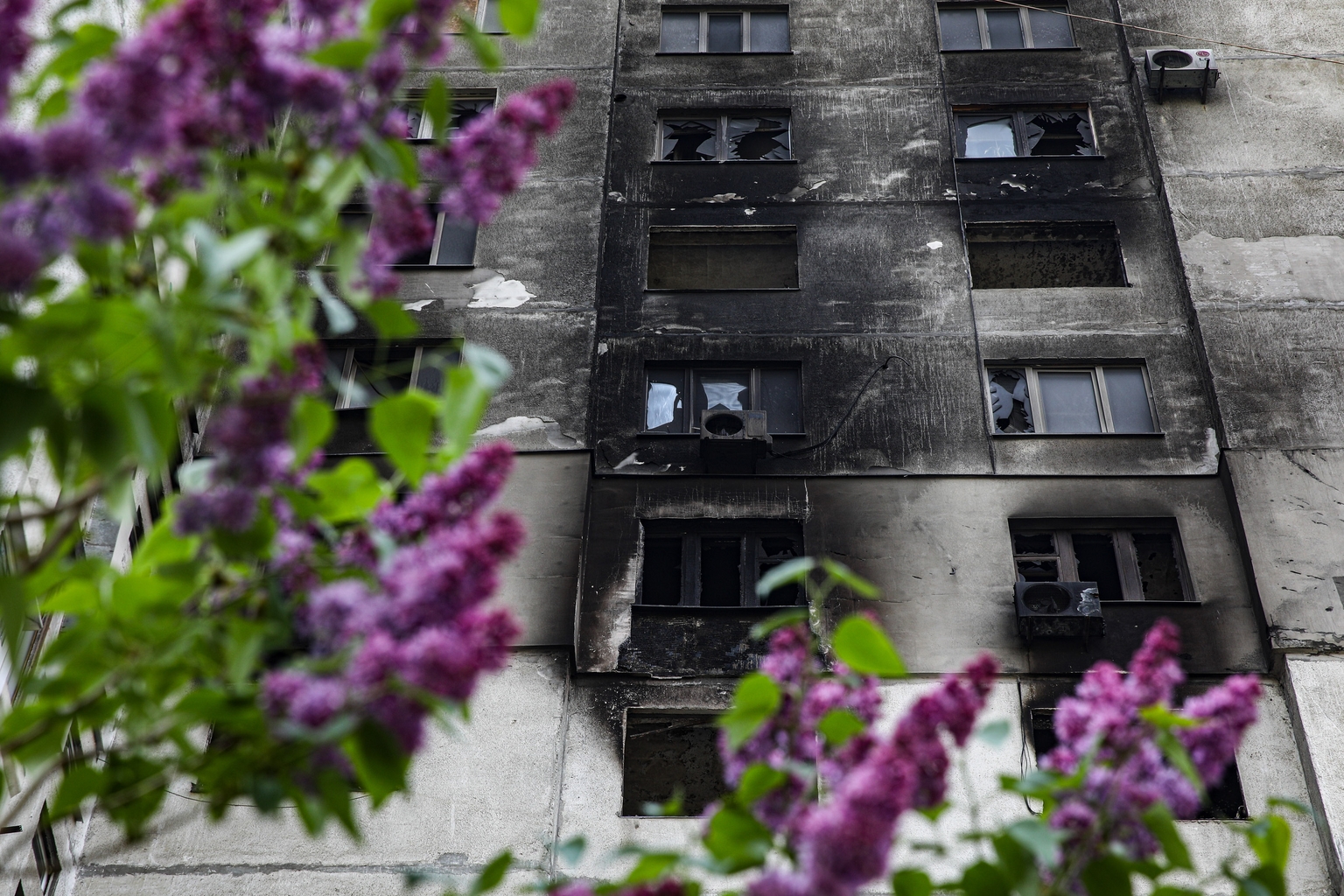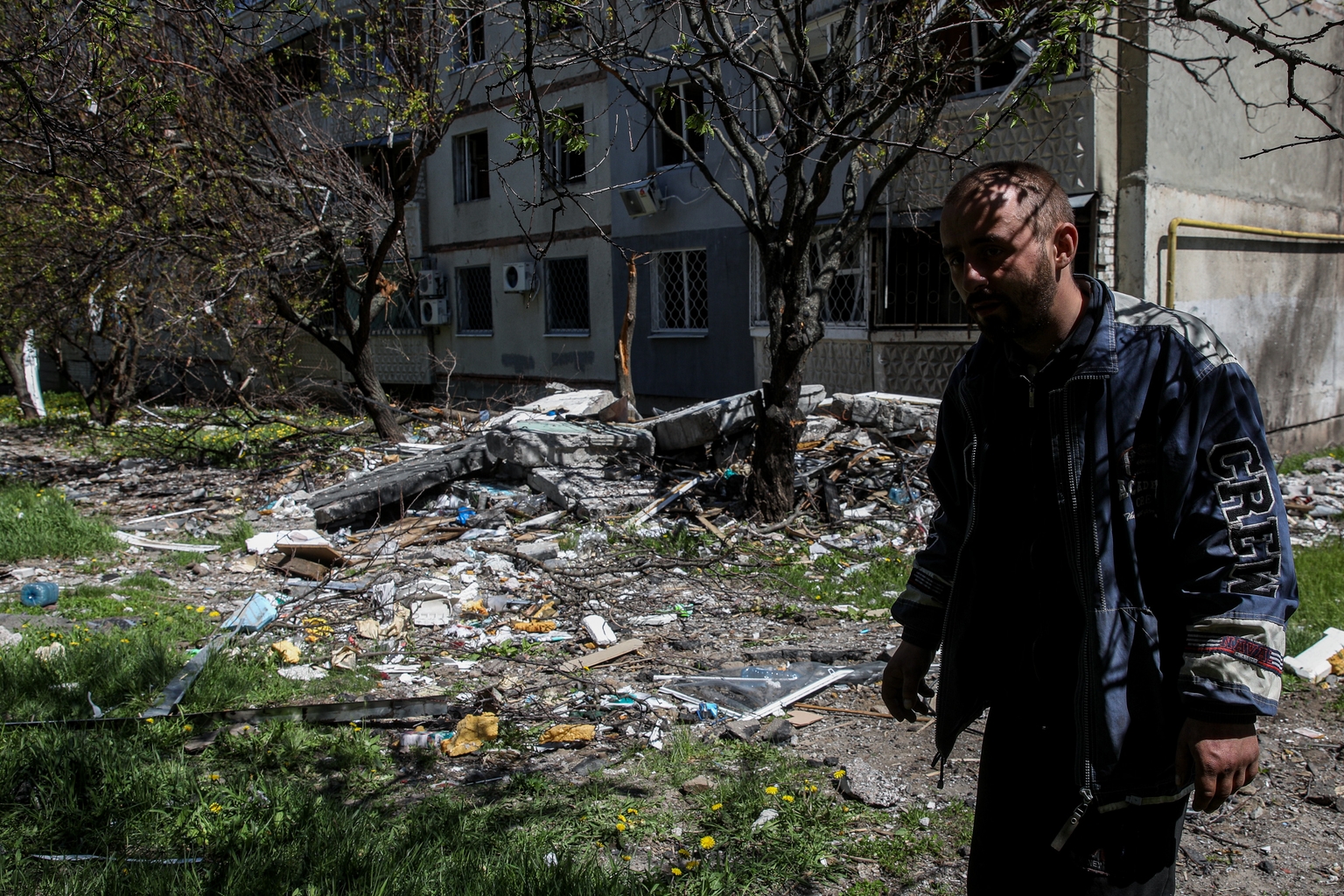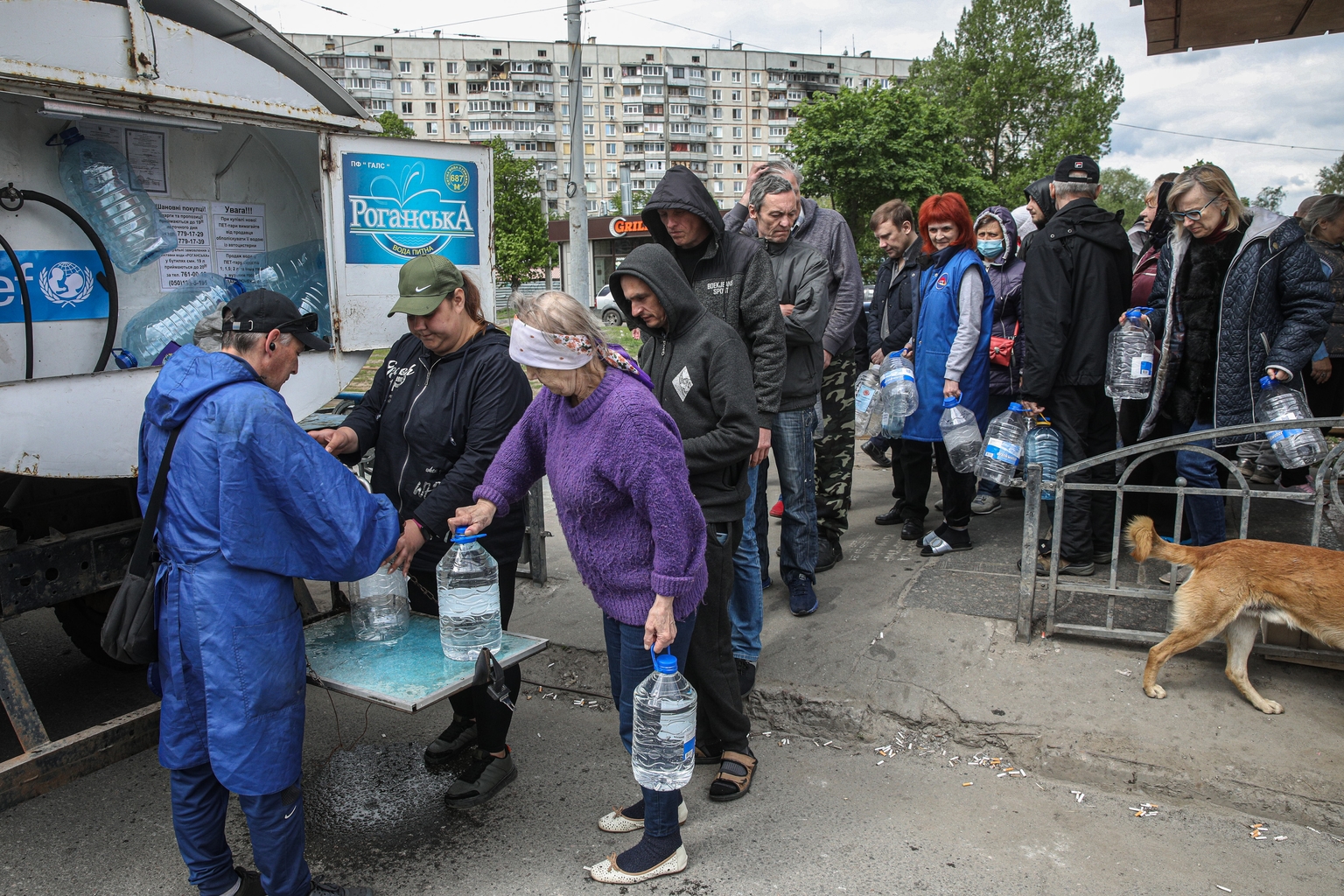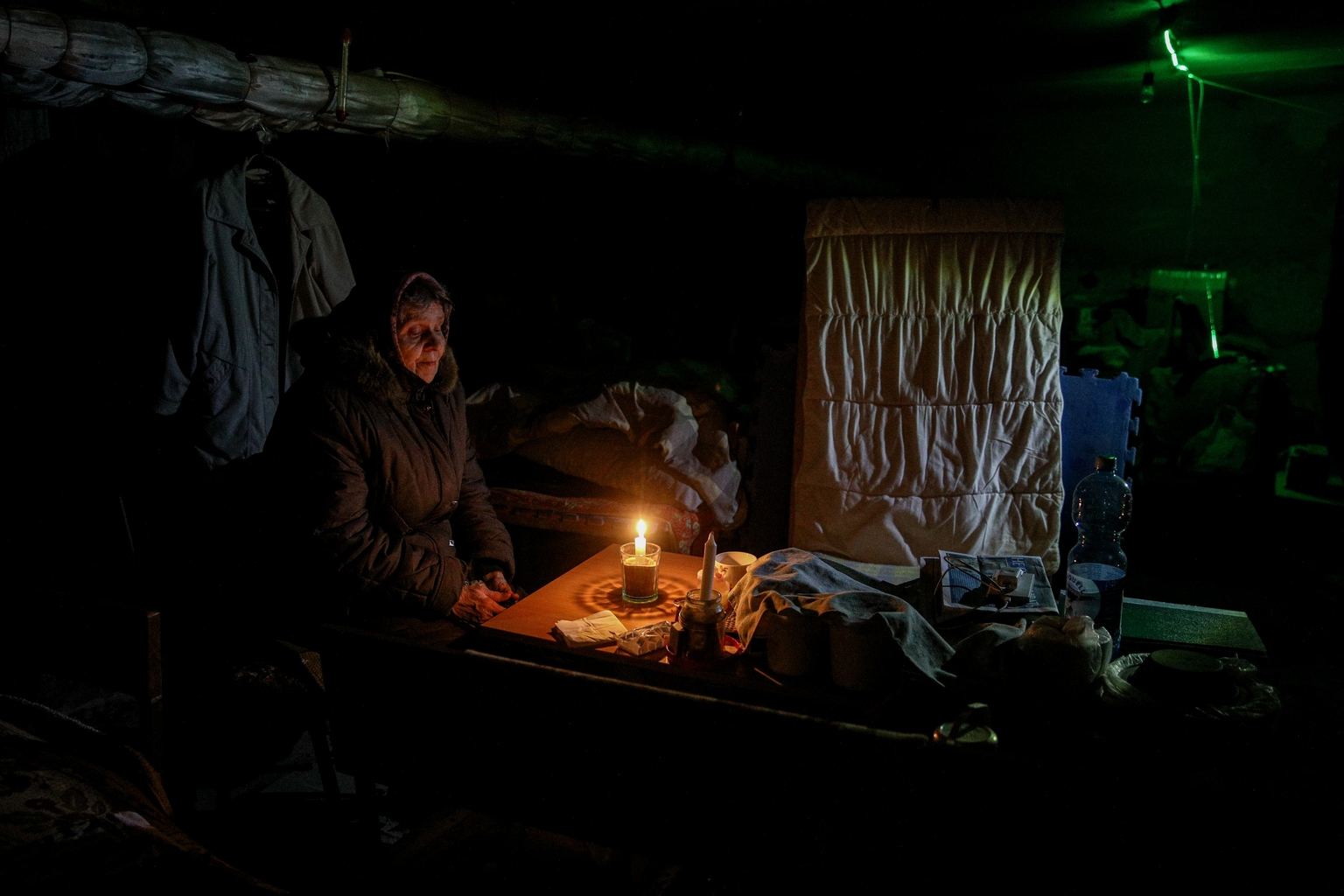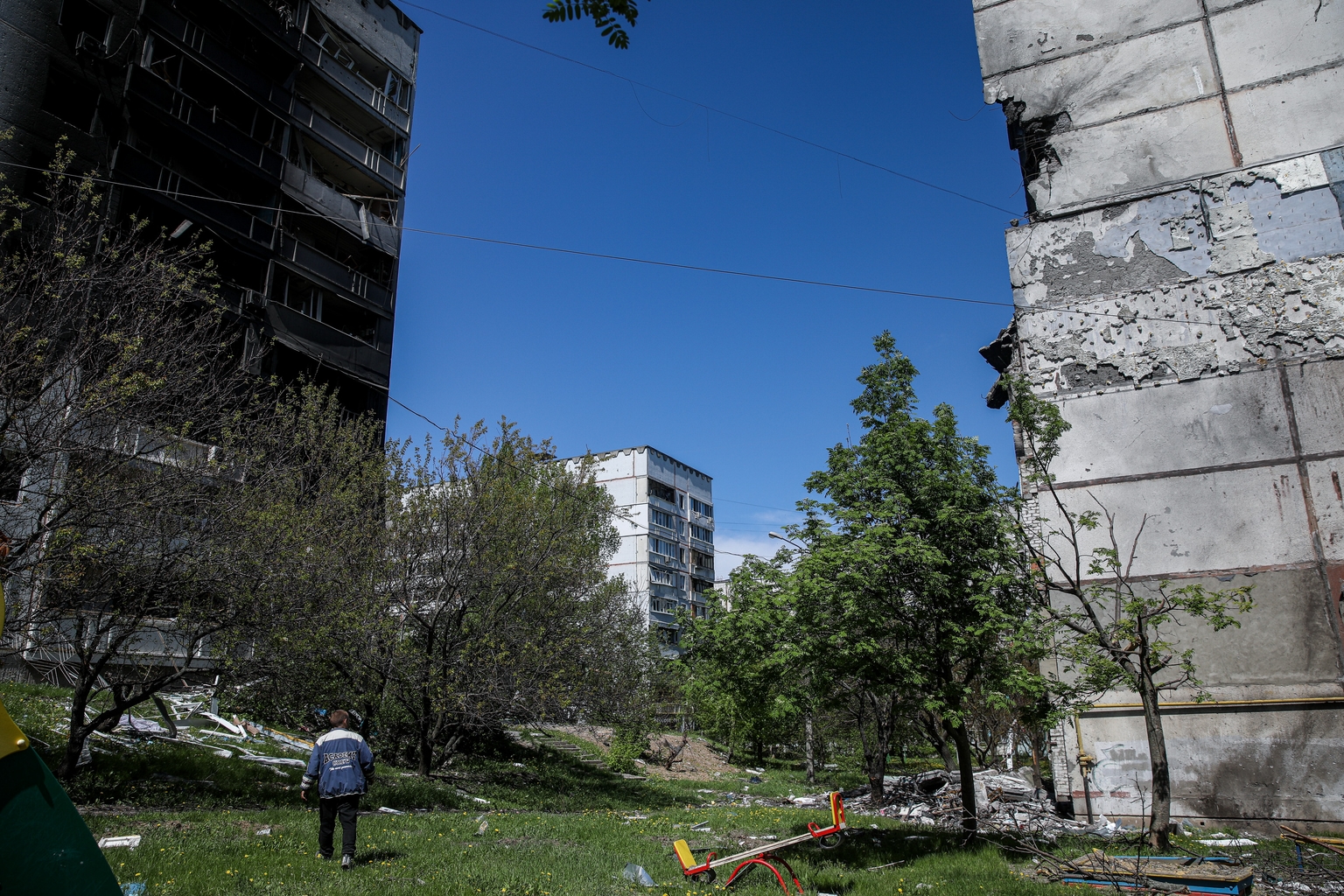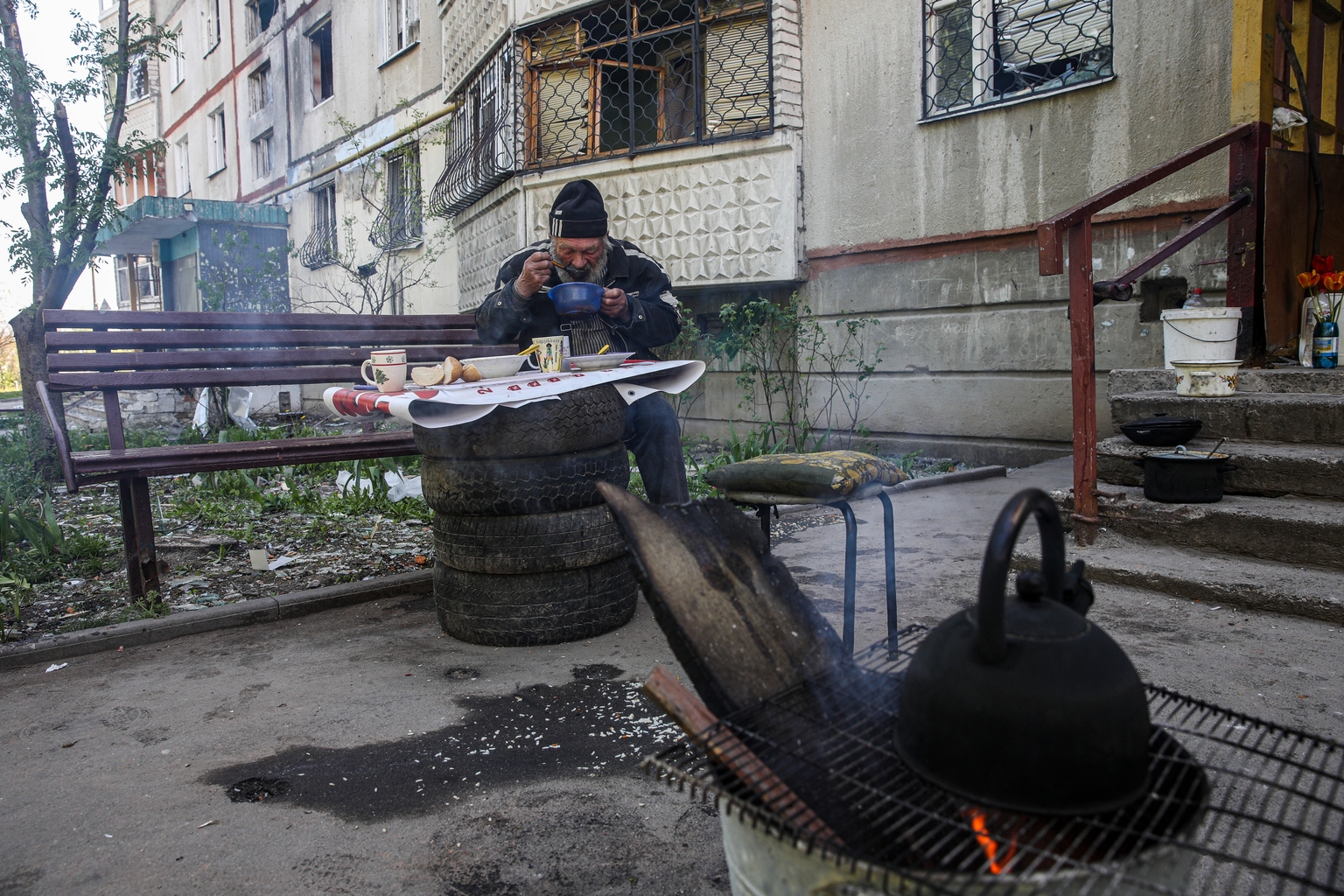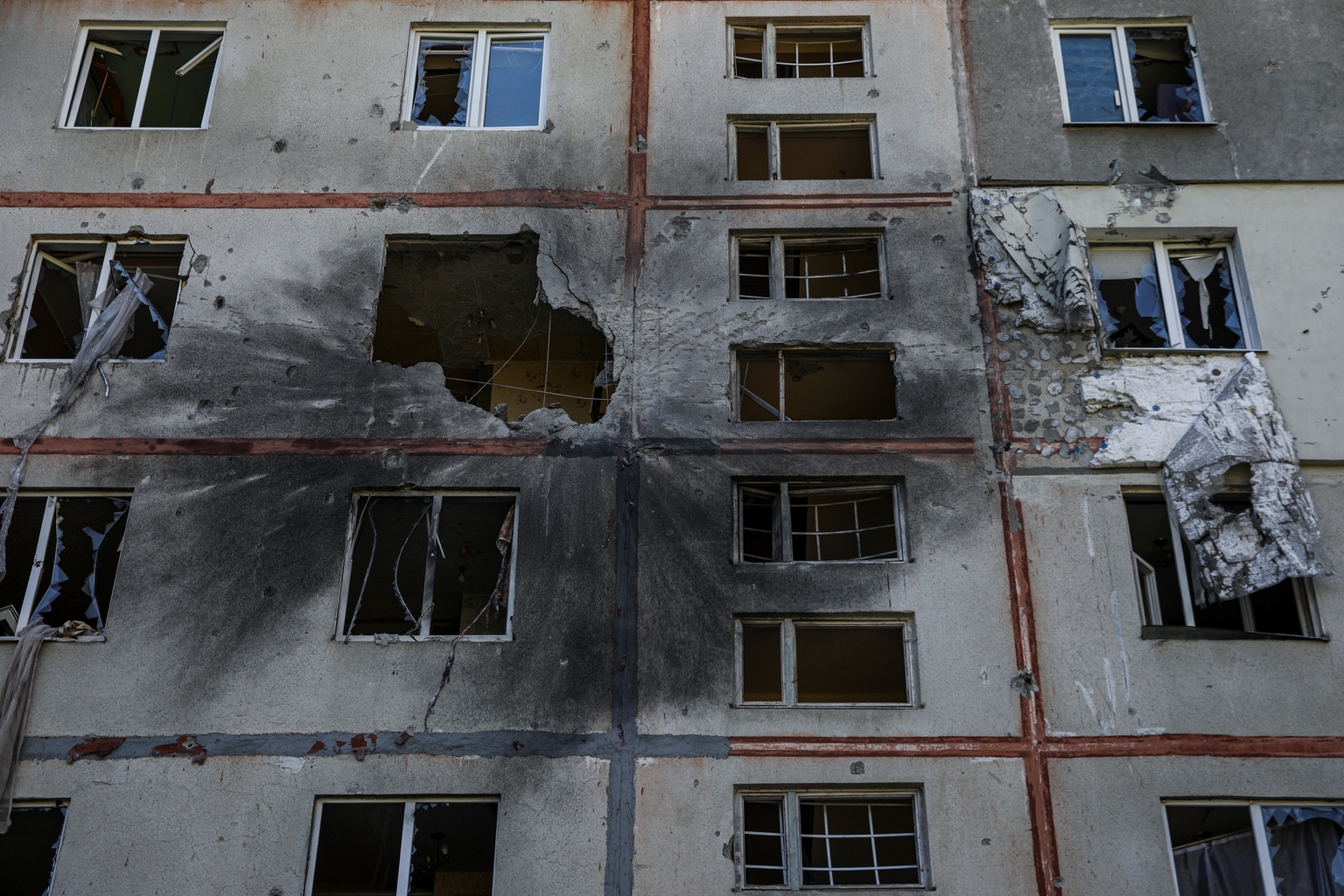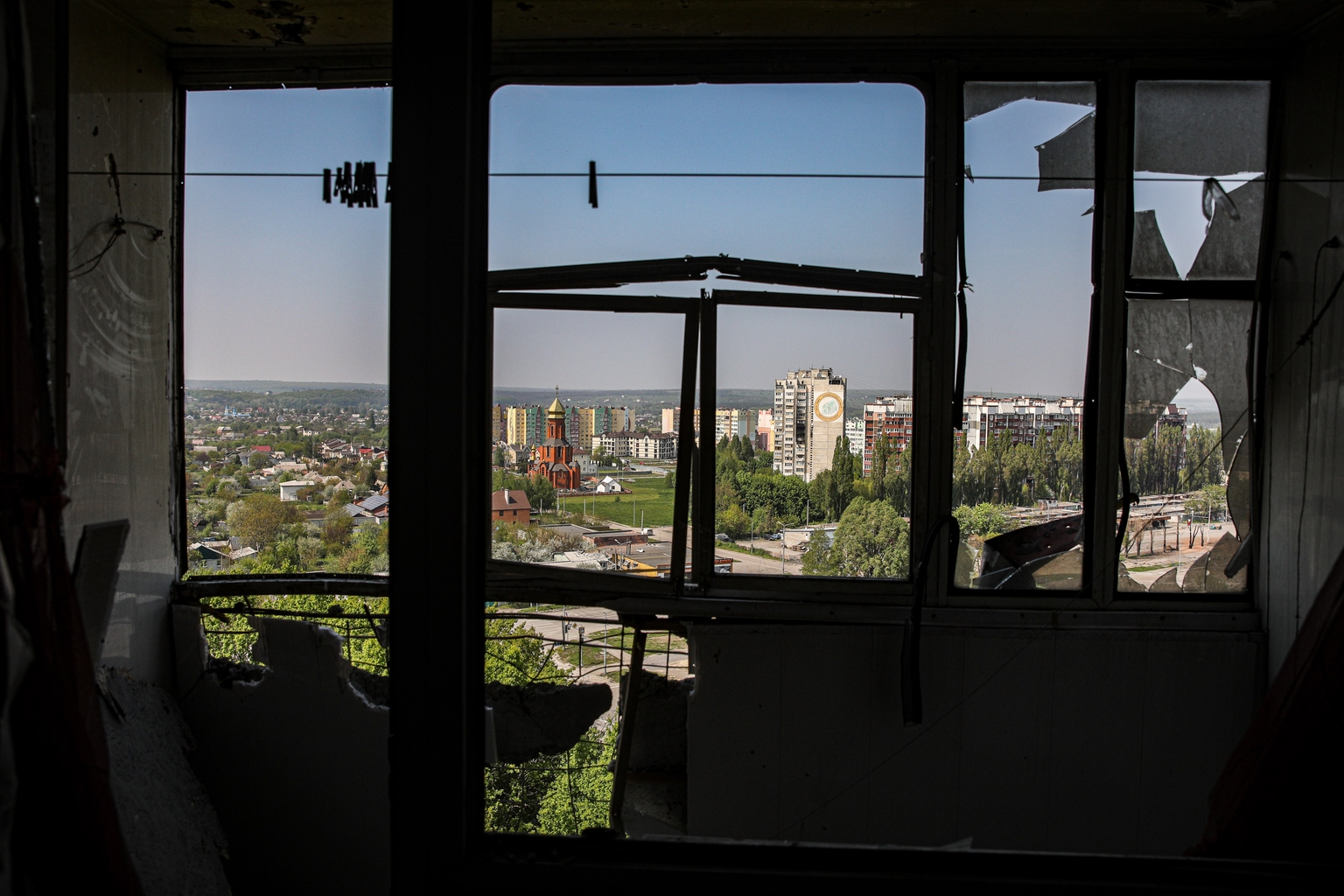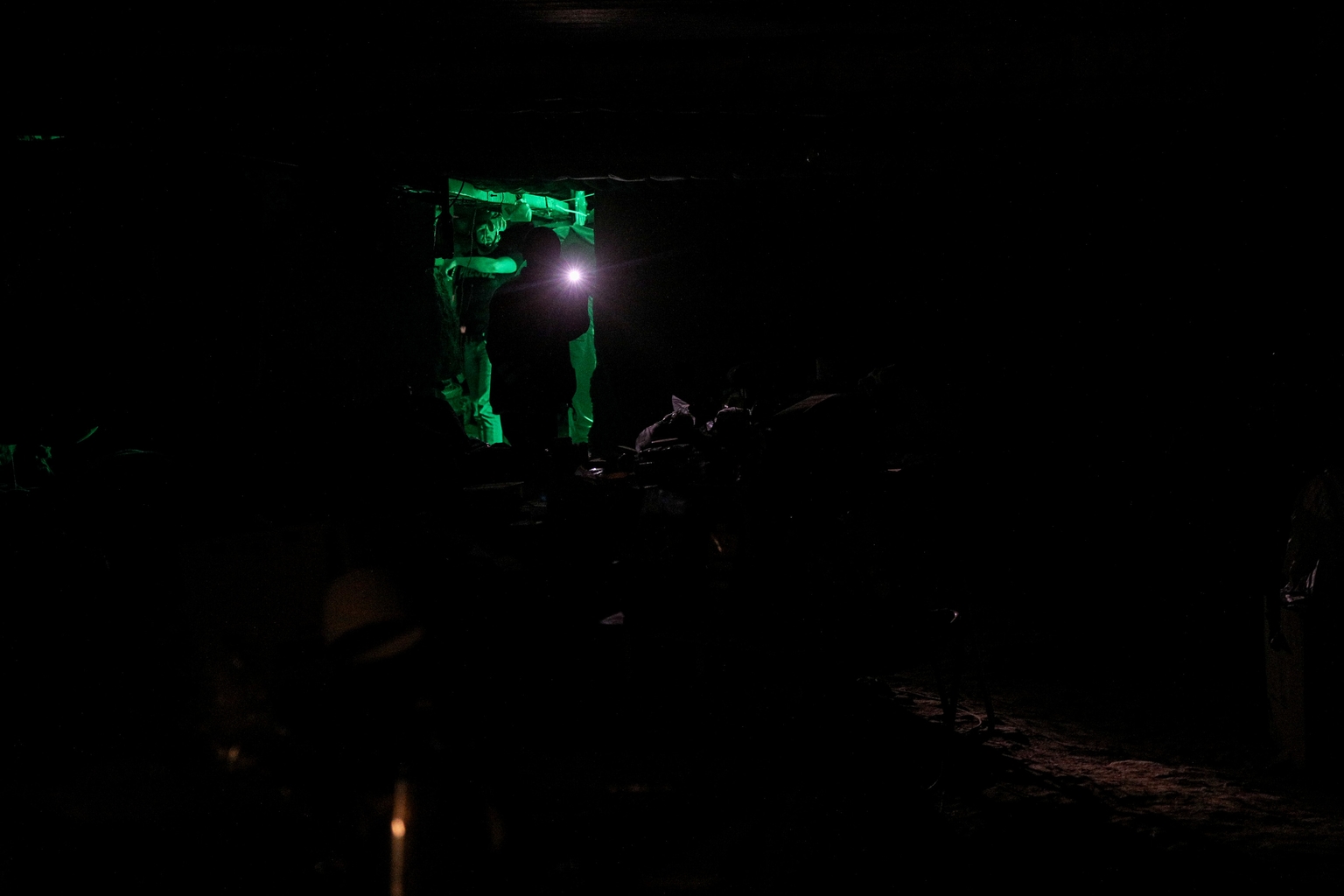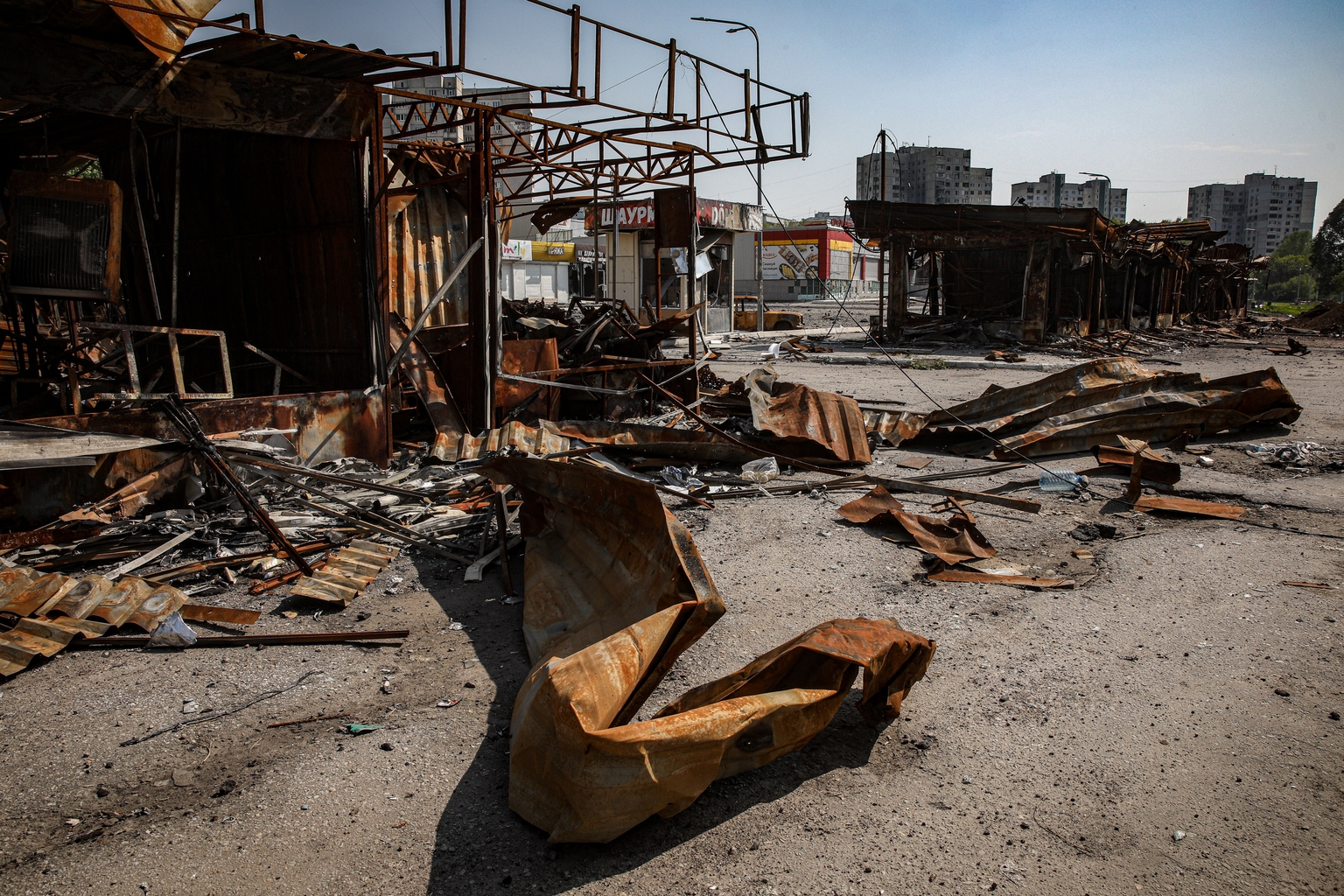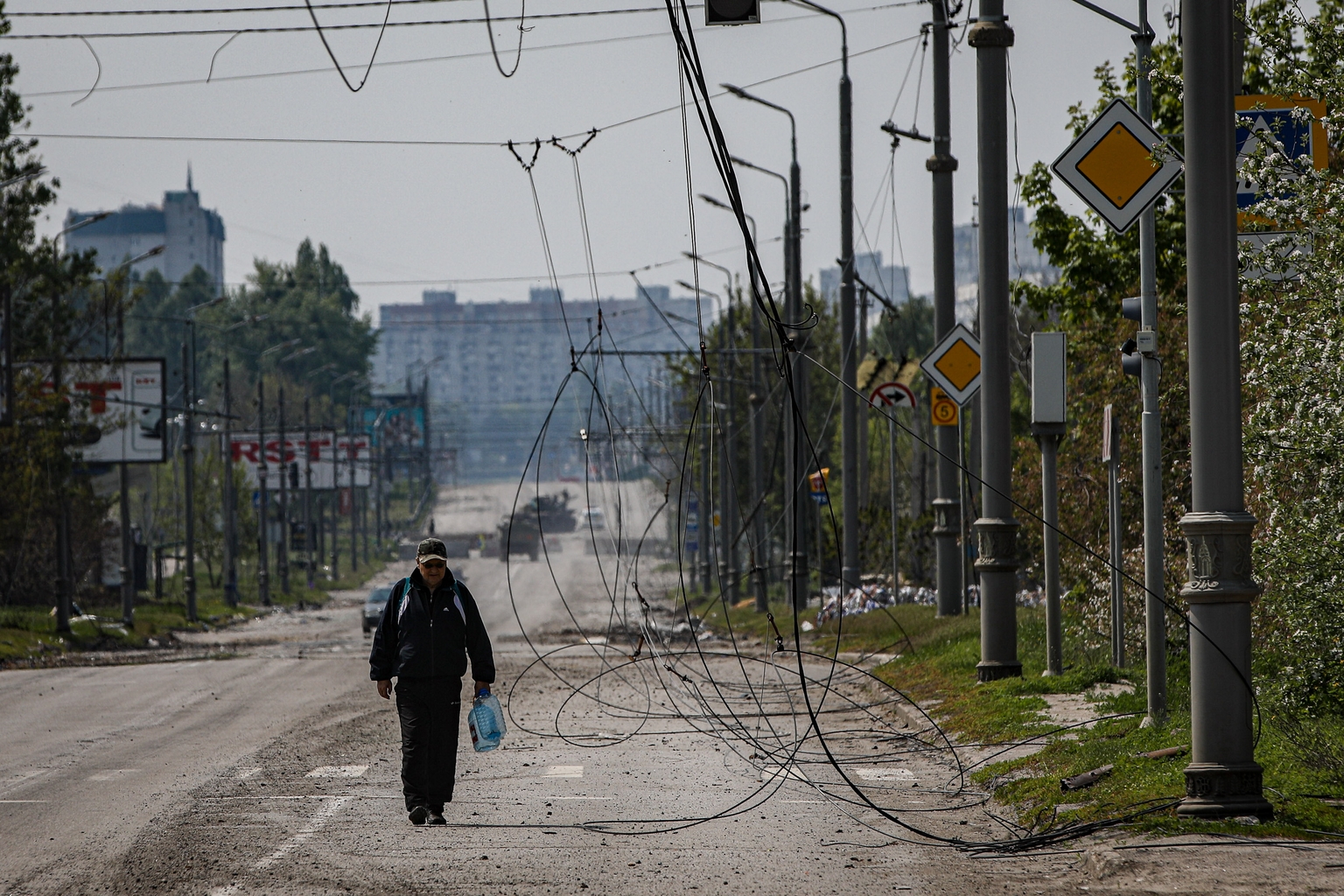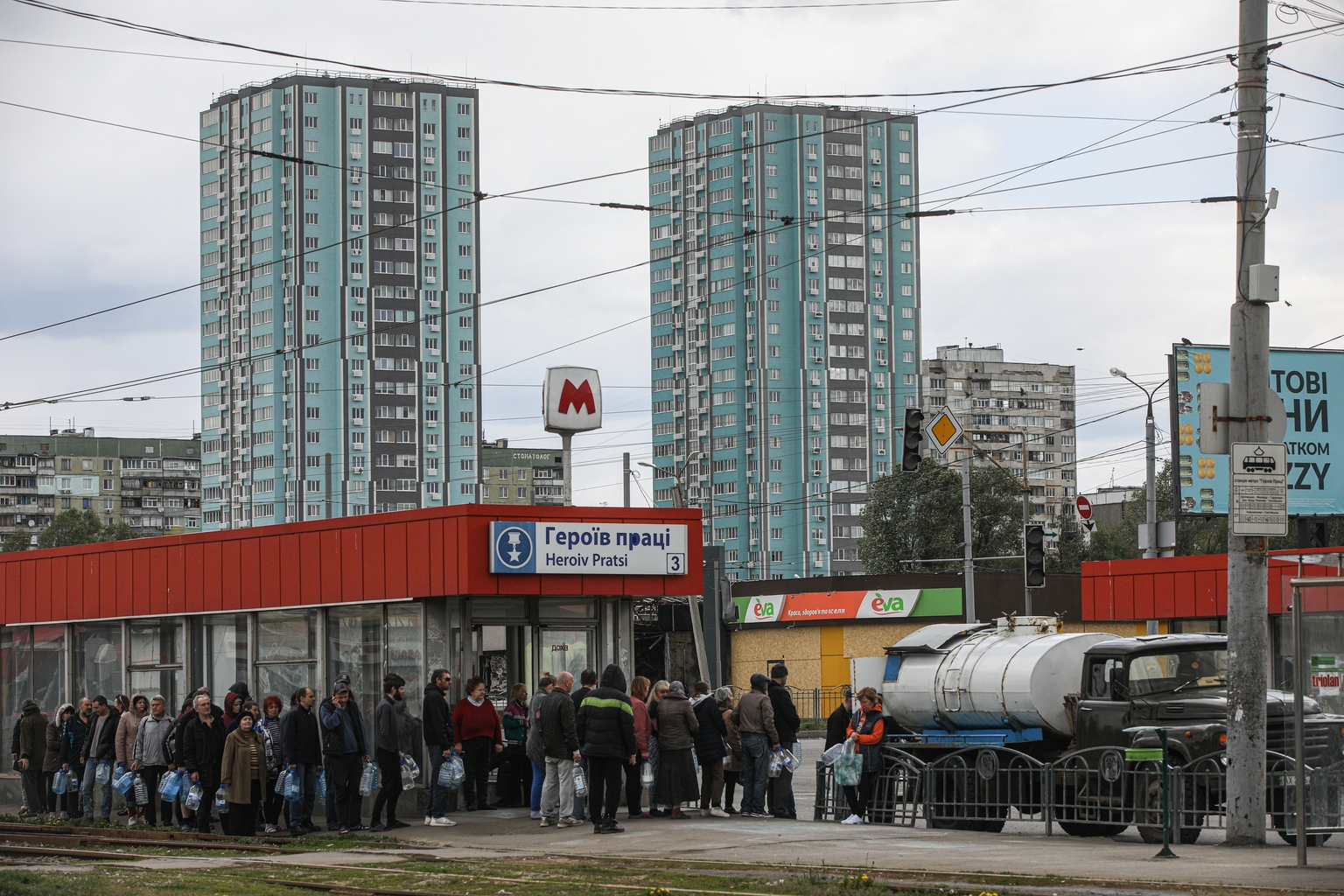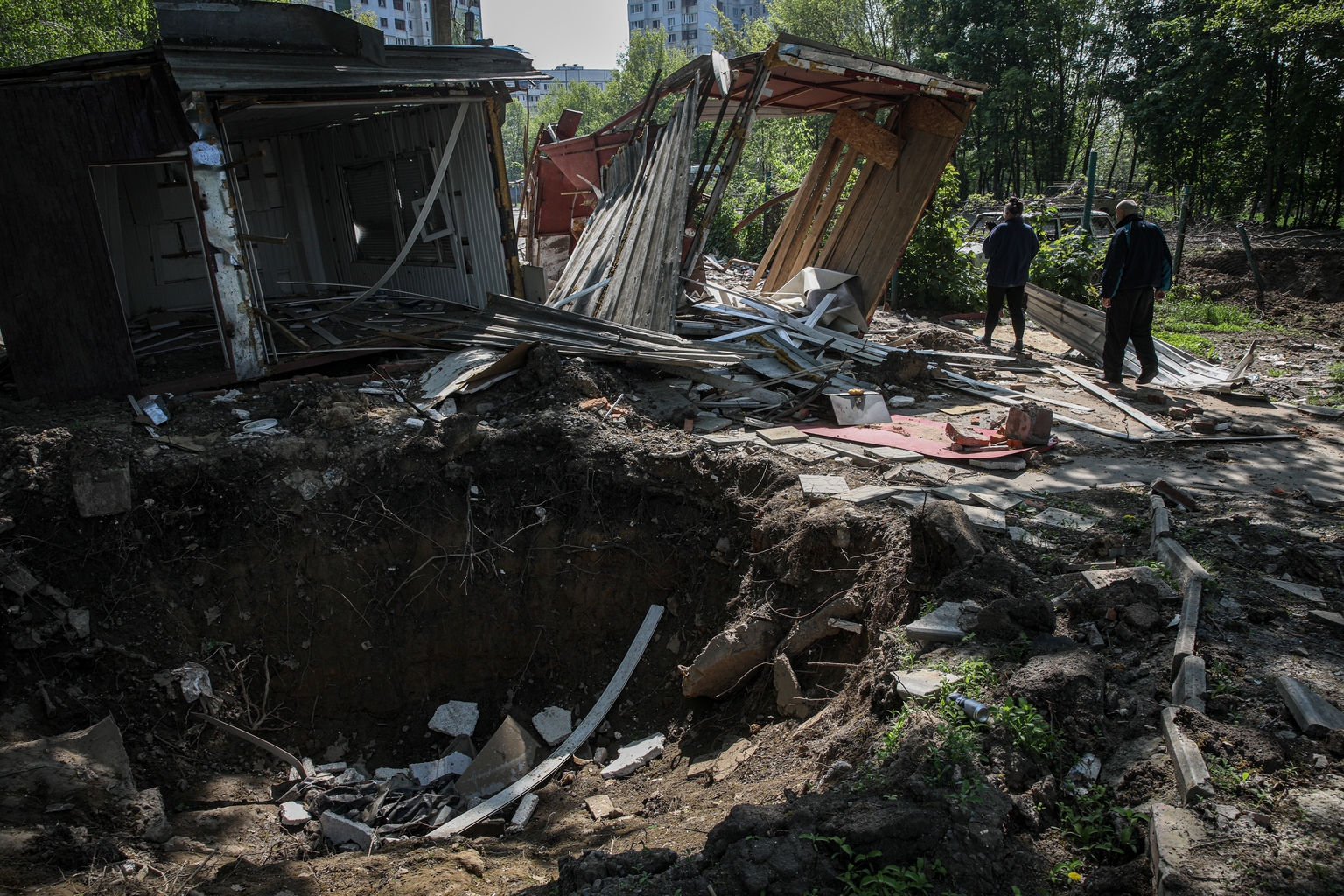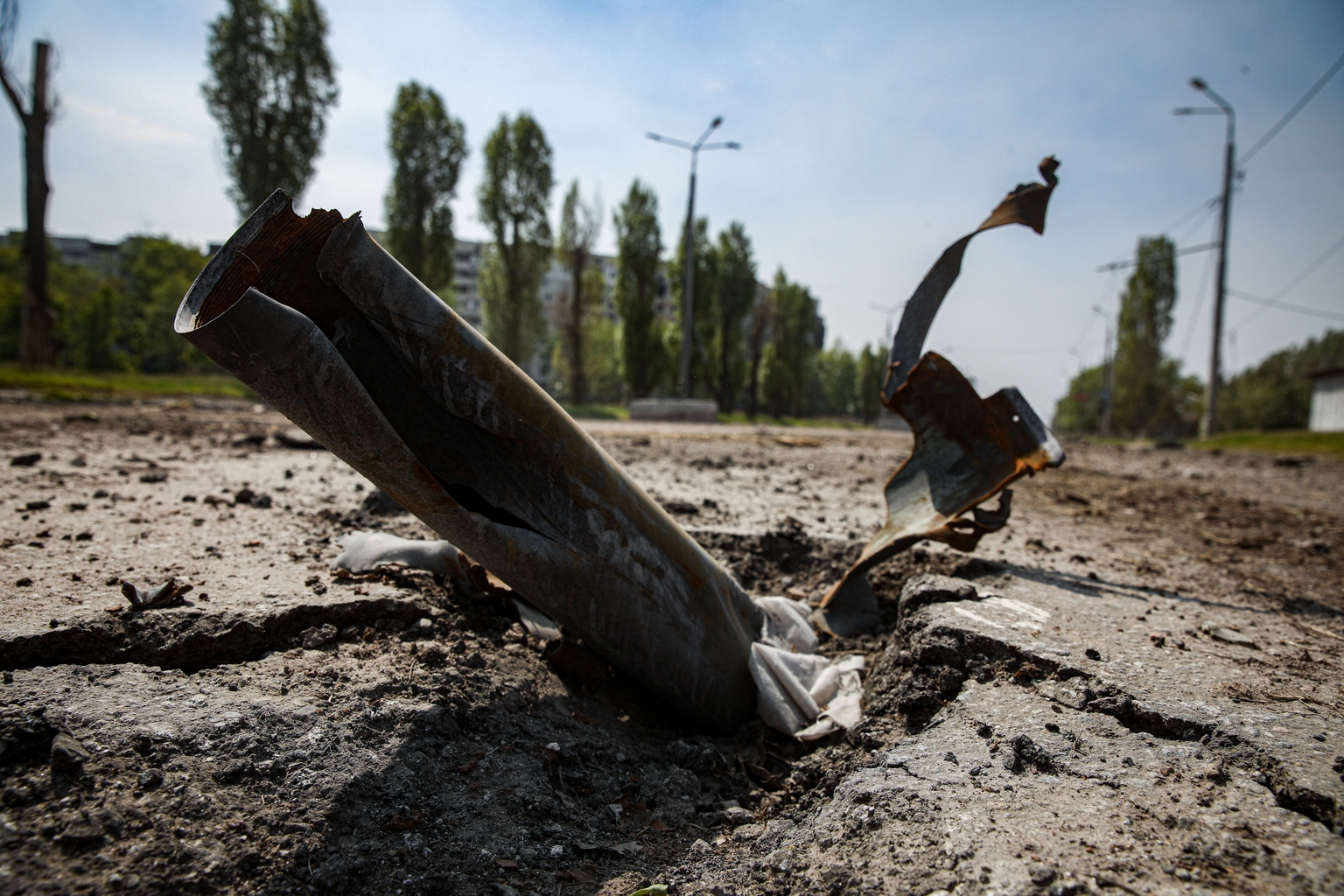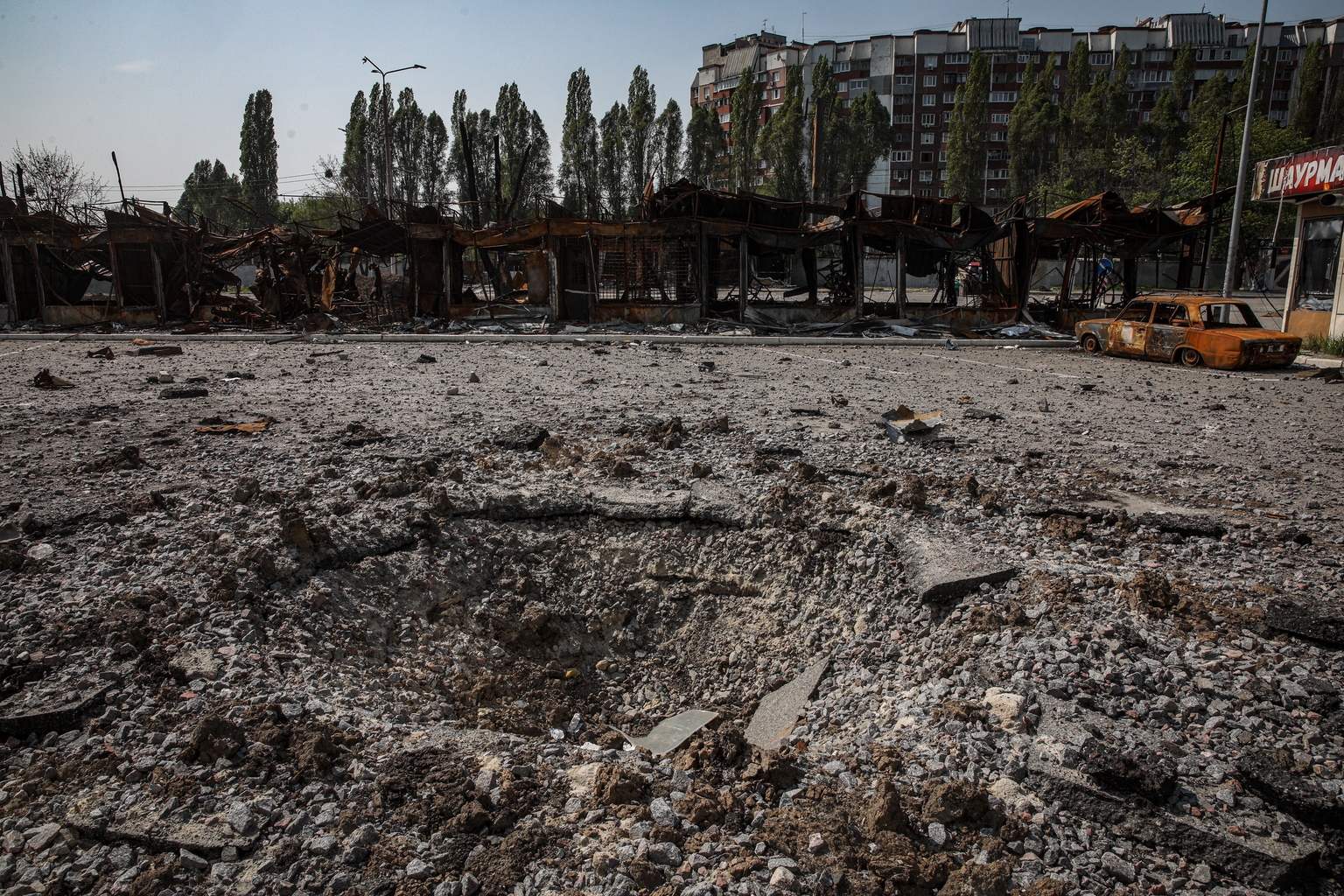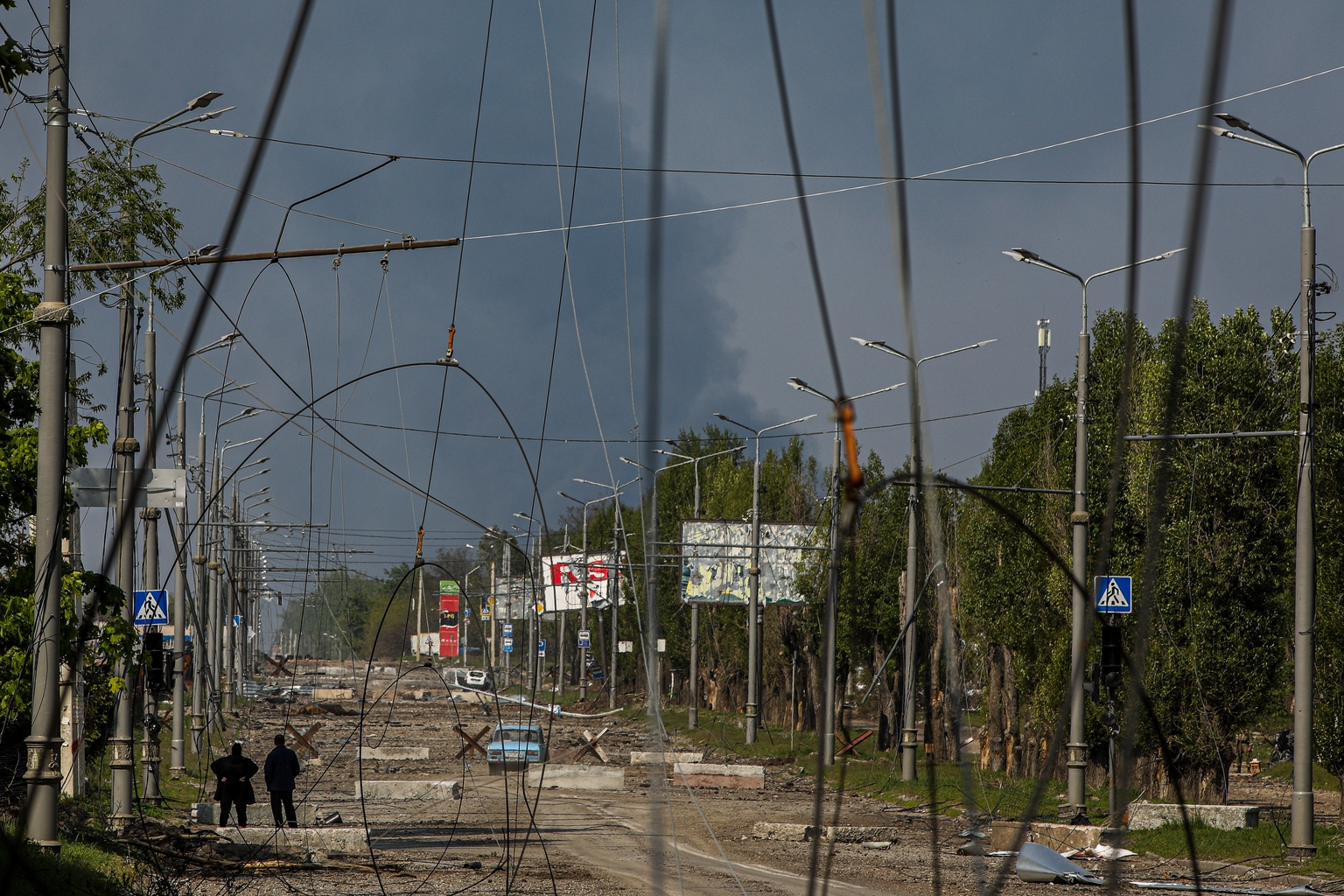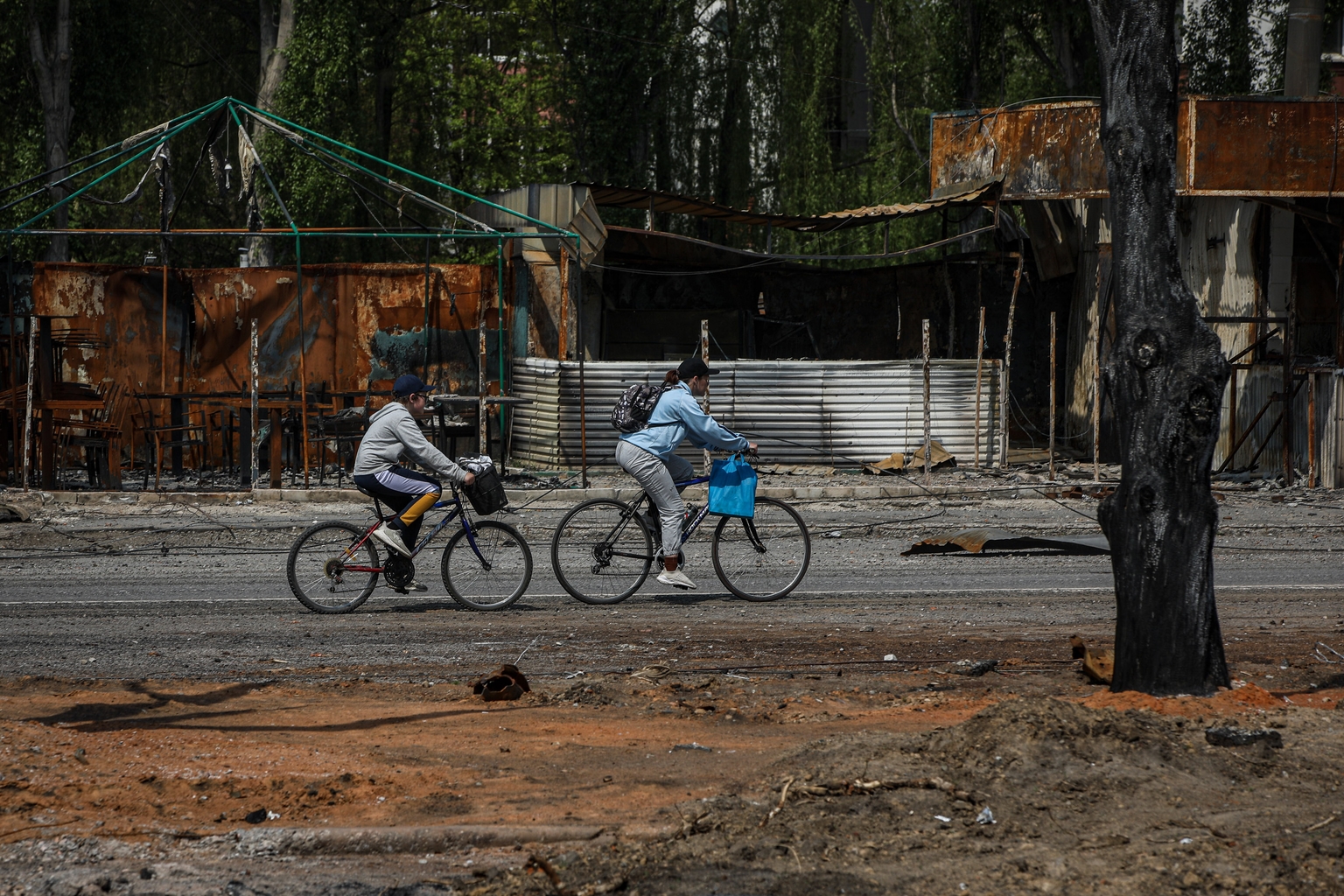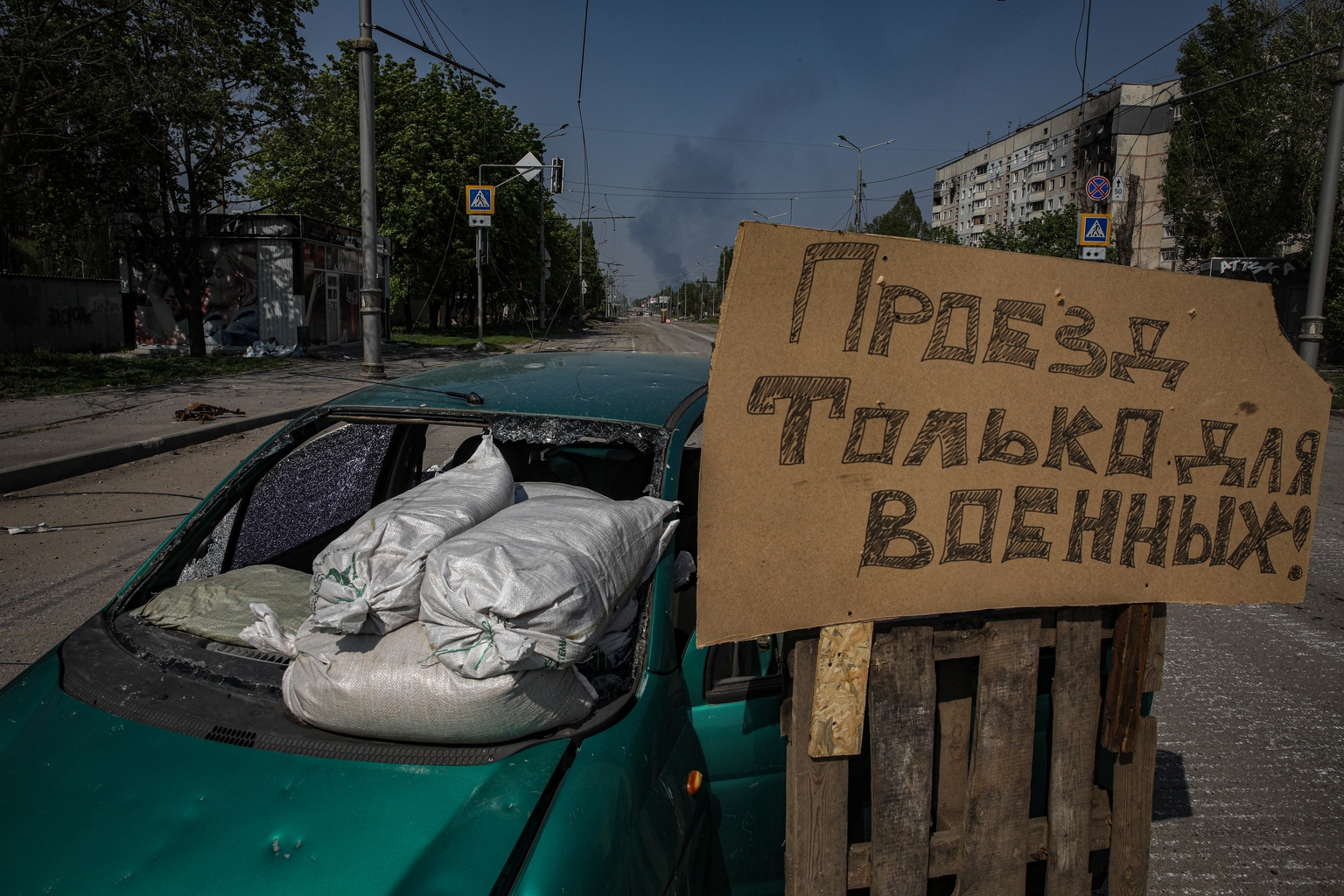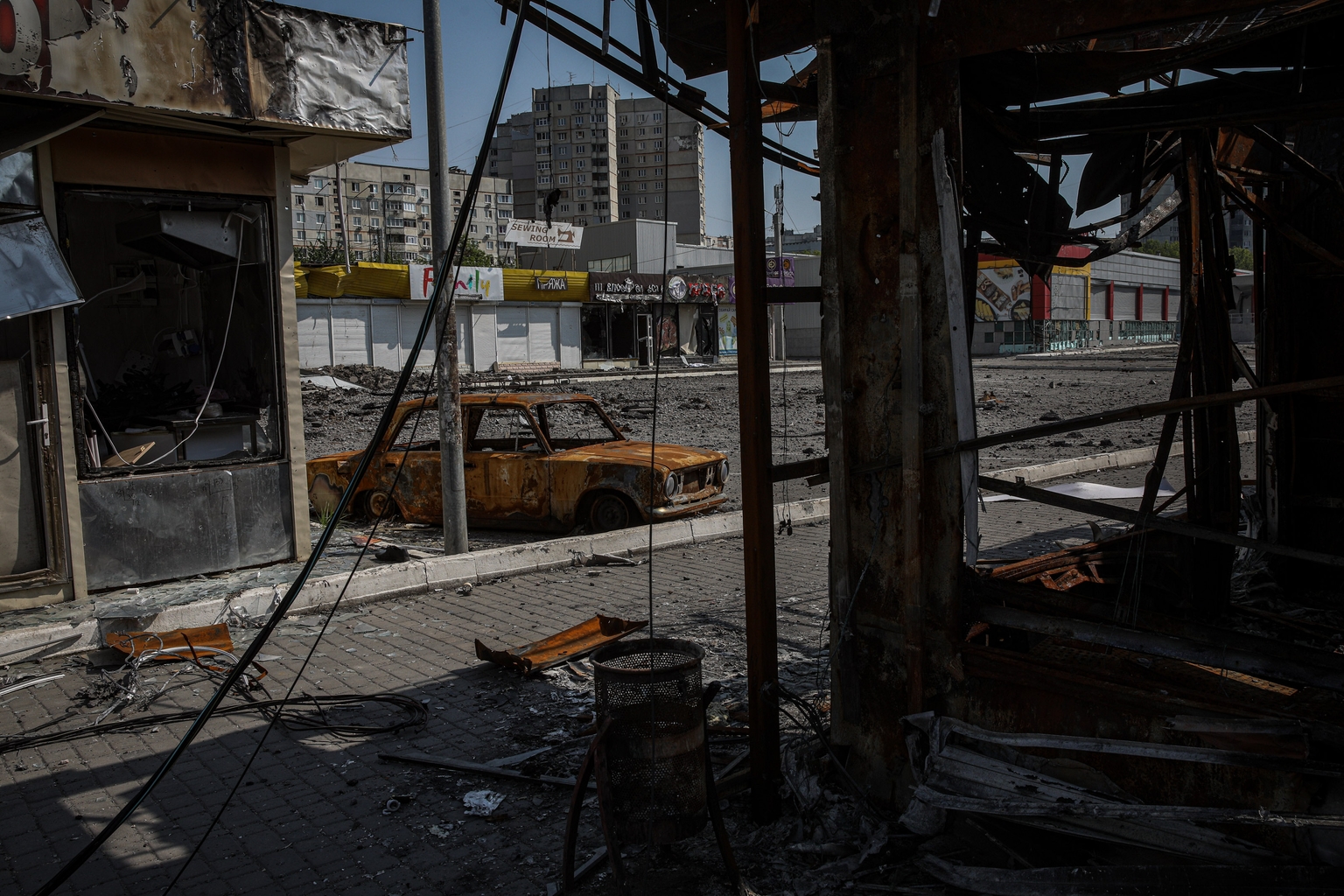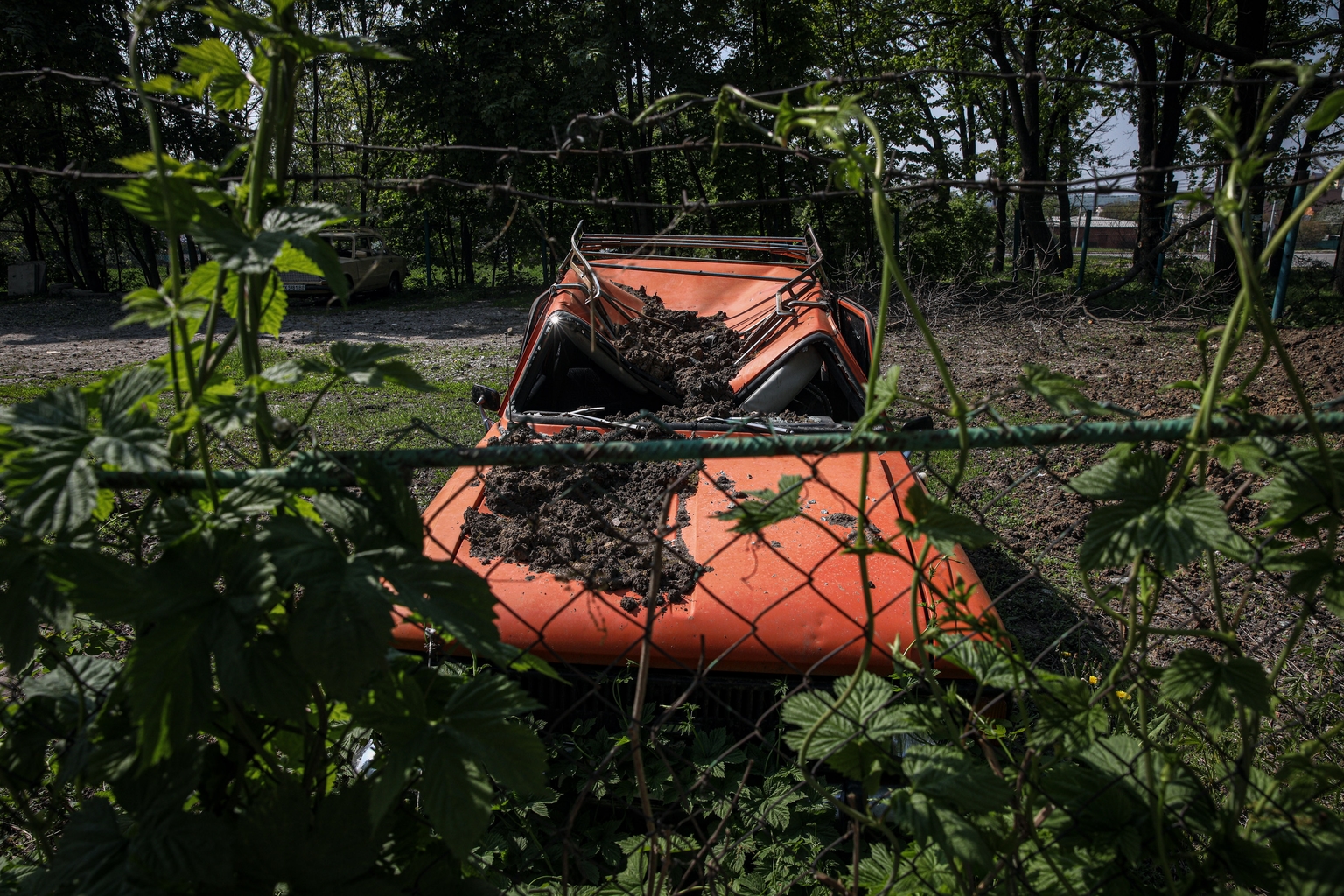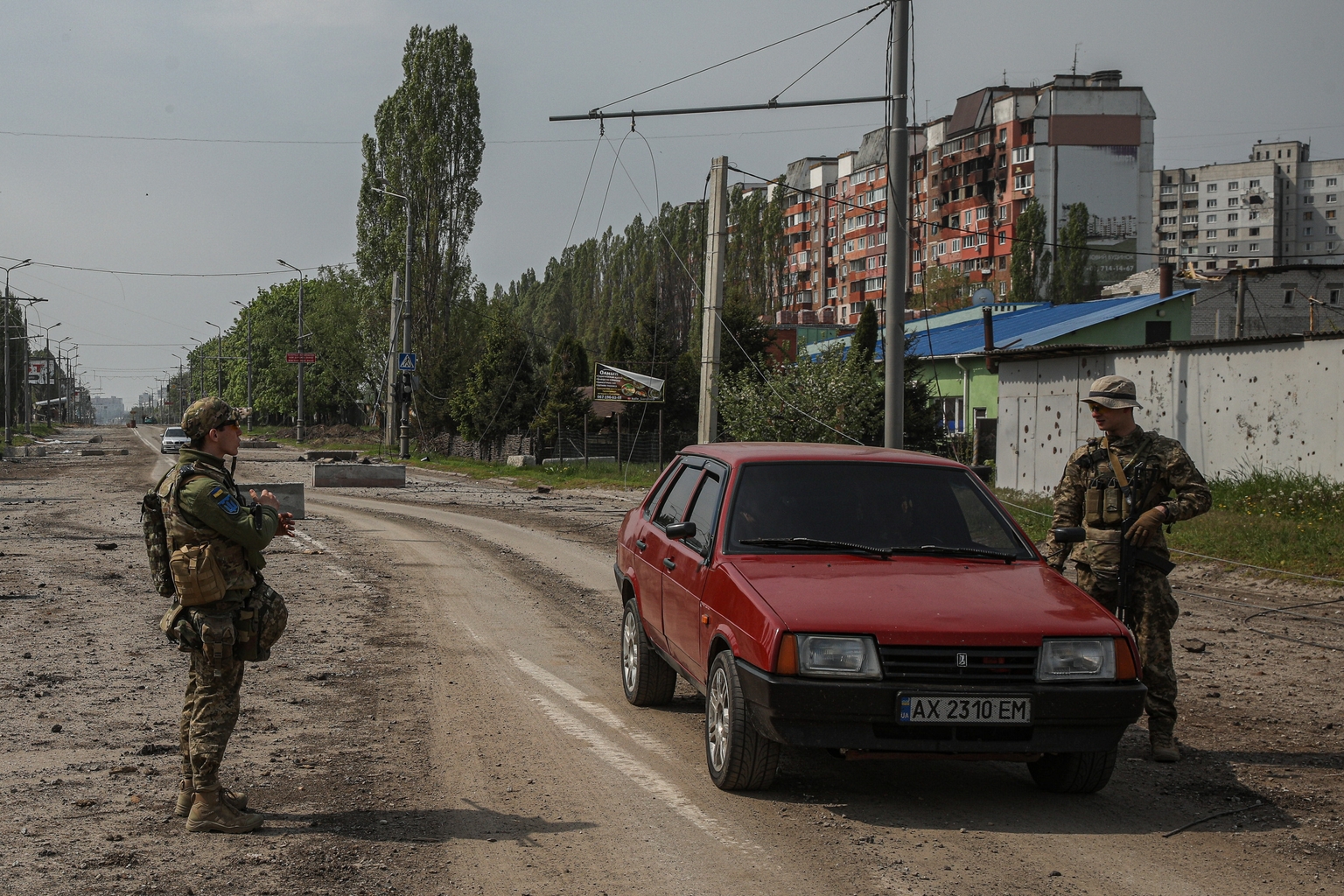KHARKIV – Oleh Puteshenko walked through the ruins of his former workplace, a restaurant in Kharkiv, barely holding back tears.
The 46-year-old, who used to work as a security guard, spoke proudly of the restaurant as he showed the terrace where he spent most of his days taking care of the plants. “The food was delicious here,” he said.
Surrounded by apartment complexes and greenery in the residential Saltivskyi District, referred colloquially to as Saltivka, the cozy pizzeria used to be a special place for many locals. The days when the restaurant was always packed with customers are still fresh in his mind.
“And this is all that’s left (of the restaurant),” Puteshenko said, as he pointed at the blackened brick walls and rusted roof frames that remain at the site of the former restaurant.
Having served in the military since Russia launched its invasion of Ukraine in 2014, all Puteshenko ever wanted since his return was a quiet life. But just a few years after his return from the army, Russia launched its full-scale invasion of Ukraine and artillery shells began flying into his neighborhood. Puteshenko’s other home, his native town of Borodianka in Kyiv Oblast, was nearly flattened by relentless Russian airstrikes.
Still in shock from what Russian troops did to his neighborhood, Puteshenko could barely find the words to describe his feelings.
“It hurts,” he said.
Ever since the early days of Moscow’s all-out war, Kharkiv, Ukraine’s second-largest city, has been one of the main targets of Russian shelling.
Puteshenko lives in Saltivka district, Kharkiv’s northeastern flank closest to the Russian border. Though no part of Kharkiv was spared, the military front line ran right near Saltivka and it was quickly turned into the hardest-hit part of the metropolis.
Even within Saltivka, Puteshenko is from the northern part of the district known as Pivnichna Saltivka, an area close to where Russian troops were deployed until their withdrawal in early May.
Although Ukraine’s counteroffensive in the area was successful in pushing back Russia’s occupying forces farther away from Kharkiv and shelling has decreased, the danger has not left the city.
Olena Shapoval, a spokesperson of the Kharkiv Oblast Military Administration, told the Kyiv Independent that Russian forces are still in artillery range from the city, adding that shelling still continues and civilian casualties are still being reported.
Saltivka is also still under fire. Artillery still echoes through the neighborhood and infrequent indiscriminate shelling still poses a threat to remaining residents. Despite being an ordinary residential neighborhood without any military infrastructure, Russia heavily shelled Saltivka during the first two months of the war. Though their intensity has decreased, the attacks still continue to this day.
There is no data available specifically on the number of casualties in the city of Kharkiv or the Saltivka neighborhood at the moment. According to the Kharkiv Oblast Military Administration, as of June 27, 908 oblast residents have been killed and 1,677 have been wounded since the start of the all-out war. But the real number is likely higher as rescuers are still finding bodies under the rubble, Shapoval said.
Hard-hit district
What used to be Ukraine’s largest residential district home to one-third of the population in Kharkiv turned into a ghost town within just a matter of days.
The Soviet-style residential neighborhood built between the late 1980s to early 1990s used to be a lively place, with streets lined with rows of multi-story buildings. Saltivka was a convenient district to live for a wide range of age groups from young families to elderly people, with plenty of stores, markets, and parks.
Saltivka’s Barabashovo market, the biggest in eastern Europe and one of the largest in the world, is among the many sites destroyed by Russia. The market, where close to 15,000 businesses used to operate, burned down in March due to Russian bombardment. The flame spread several kilometers, leaving nothing but wreckage at the site.
Russia has been shelling just about anything from health care facilities, educational institutions, malls to apartment buildings without specific targets, Shapoval said.
While missiles have also pounded the district, artillery shellings are what Russian forces have been using the most “to make civilians feel unsafe,” according to Shapoval. This type of shelling tends to be imprecise so its use, particularly when aimed at residential areas, poses a significant danger to civilians. As a result of indiscriminate shelling, many apartment blocks are pockmarked with blackened shell holes from months of artillery strikes, while other areas have been completely destroyed.
Residents have gradually begun returning to Kharkiv now that the most intense months have passed, but the continuing shelling makes it difficult to resume life in the metropolis.
Pivnichna Saltivka is still largely empty, especially as the area has been cut off from gas, electricity and heat for weeks and utilities are not fully back yet. It’s difficult for workers to come to fix the damaged infrastructure when there is ongoing shelling, Shapoval said.
Some locals continue to use an open fire to boil water and cook warm meals, relying on help from volunteers. In this part of the city, public areas such as shops, cafes and restaurants have been destroyed to the point that it’s almost unrecognizable.
Several hundred people still remain in the northern part of Saltivka, according to media reports. Many stay by choice, while others stay due to the lack of financial means or because they have elderly relatives they have to take care of.
And many remain living underground as shelling continues to threaten the neighborhood.



